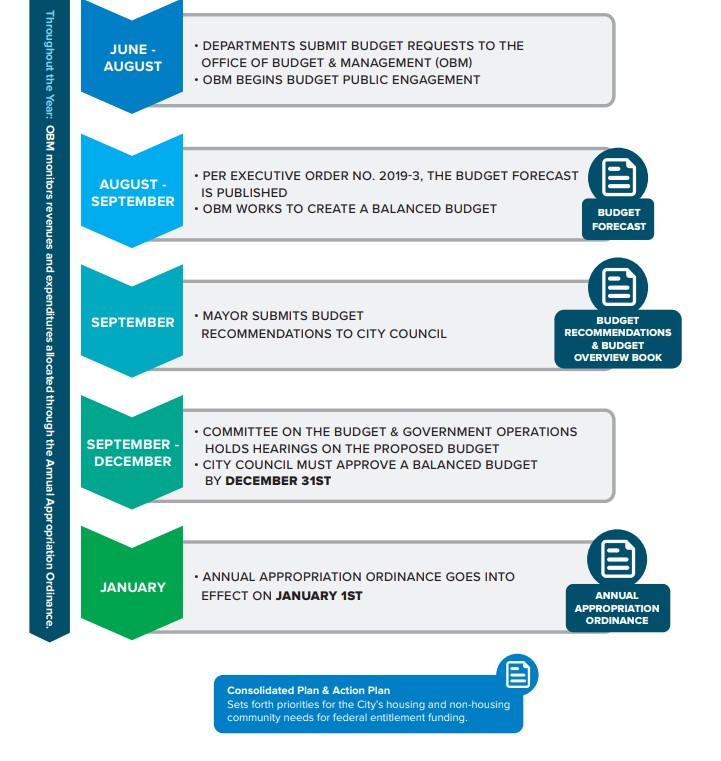Budget Process




Each year, the City prepares an annual budget that accounts for revenue from taxes and other sources and sets forth a plan for how the City intends to utilize those resources over the course of the following year. In accordance with the State of Illinois Municipal Code, the City produces a balanced budget, meaning that its appropriated expenditures do not exceed the amount of resources it estimates will be available for that year.
The budget process begins each summer, when City departments inform OBM of their personnel and non-personnel needs for the upcoming year. OBM then prepares a preliminary budget based on the requests submitted by the departments and the resources OBM expects will be available to fund those needs. This preliminary budget is used to inform the Annual Financial Analysis, which by Executive Order is issued on or before July 31st of each year.
The Annual Financial Analysis presents an overview of the City’s financial condition, and it serves as the starting point for preparing next year’s budget. The document includes a historical analysis of the City’s revenue and expenditures; financial forecasts for the City’s major funds; and detailed analyses of the City’s reserves, capital program, debt, and pensions.
Throughout the remainder of the summer, OBM and the departments continue the process of reviewing each department’s operating and programmatic needs and developing detailed departmental budgets. OBM also evaluates anticipated Citywide expenses such as pension contributions and employee health care, and estimates the amount of revenue that the City will collect in the following year.
In the fall, the City solicits input from the public, encouraging residents to ask questions and express their opinions about the City’s budget. After receiving input from Chicago residents, the Mayor and OBM work with departments to develop one final budget for the entire City government. When these steps are complete, OBM compiles and balances the Mayor’s proposed budget, which is introduced to the City Council on or before October 15th of each year.
The City Council then holds committee and public hearings on the Mayor’s proposed budget and may propose amendments to it. Once the proposed budget, as amended, is approved by the City Council, it becomes the Annual Appropriation Ordinance. The Annual Appropriation Ordinance is implemented on January 1st of the following year and represents the City’s operating budget for that year.

